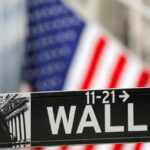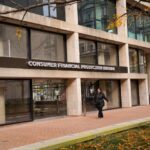By Stephen Zogopoulos, USNN World News
In an unprecedented shift, imagine a United States where the Federal Reserve no longer plays a central role in managing the nation’s economy. For over a century, the Federal Reserve (Fed) has been the backbone of American monetary policy, controlling interest rates, regulating banks, and acting as a lender of last resort during financial crises. But what would the economy look like without this institution? Could the U.S. thrive without the Fed’s guiding hand?
The Vision: A Decentralized Monetary System
In a scenario where the Federal Reserve is abolished, the U.S. would need to adopt a decentralized monetary system. This could involve a return to a gold standard, the rise of decentralized cryptocurrencies, or a combination of alternative monetary frameworks. The goal would be to eliminate the concentration of monetary power and instead, foster a more market-driven approach to currency valuation and interest rates.
Challenges and Opportunities
One of the most immediate challenges would be ensuring liquidity and stability in the absence of the Fed’s monetary policy tools. Without the ability to set interest rates or conduct open market operations, the economy would be left to the forces of supply and demand to determine the cost of borrowing and the value of the dollar. This could lead to greater volatility in interest rates and exchange rates, as they would now be directly influenced by market forces rather than central bank intervention.
On the flip side, this decentralization could lead to more transparent and efficient markets. Without the Fed’s involvement, there would be less room for market distortions caused by artificial interest rate manipulation or quantitative easing programs. Investors would make decisions based on market fundamentals rather than trying to predict Fed policy shifts.
Steps for a Successful Transition
- Strengthen the Financial Sector: The banking system would need to be robust enough to withstand shocks without relying on the Fed as a lender of last resort. This would require higher capital reserves for banks and a more rigorous stress-testing regime to ensure stability in the face of economic downturns.
- Alternative Monetary Policies: The U.S. could explore tying the dollar to a basket of commodities or adopting a rules-based monetary policy, such as the Taylor Rule, to guide interest rate decisions. This would provide a more predictable framework for monetary policy without the need for a central bank.
- Digital Currency Adoption: Cryptocurrencies and blockchain technology could play a pivotal role in a post-Fed economy. A government-backed digital currency could provide a stable medium of exchange, while private cryptocurrencies could offer alternatives, promoting competition and innovation in the financial sector.
- Regulatory Reform: Without the Fed’s regulatory oversight, the U.S. would need a new regulatory framework to ensure that financial institutions operate safely and transparently. This could involve creating a decentralized network of regulators or empowering existing agencies like the Office of the Comptroller of the Currency (OCC) and the Securities and Exchange Commission (SEC) to take on expanded roles.
- Global Coordination: The U.S. would need to work closely with international partners to ensure that the transition does not disrupt global financial markets. Coordinated efforts would be essential to prevent currency wars and trade imbalances that could arise from a significant shift in the U.S. monetary system.
The Potential Benefits
While the risks of eliminating the Federal Reserve are significant, the potential benefits could be transformative. A decentralized monetary system could reduce the risk of inflationary pressures caused by excessive money printing and create a more competitive and innovative financial sector. The U.S. could lead the way in pioneering a new economic model that other nations might eventually adopt.
A Brave New World
The idea of a U.S. economy without the Federal Reserve is both daunting and exhilarating. While the transition would undoubtedly be complex, with careful planning and bold reforms, the U.S. could potentially emerge as a more resilient and dynamic economy. The success of this endeavor would hinge on the nation’s ability to adapt to a new economic paradigm, where the invisible hand of the market, rather than the Federal Reserve, guides the course of American prosperity.
Disclaimer: The opinions expressed in this article are hypothetical and for illustrative purposes only. They do not reflect the official stance of any financial institution, government entity, or economic expert. The scenarios discussed are speculative and should not be taken as predictions or recommendations for policy. Any decisions related to economic policy or financial management should be made in consultation with qualified professionals.






